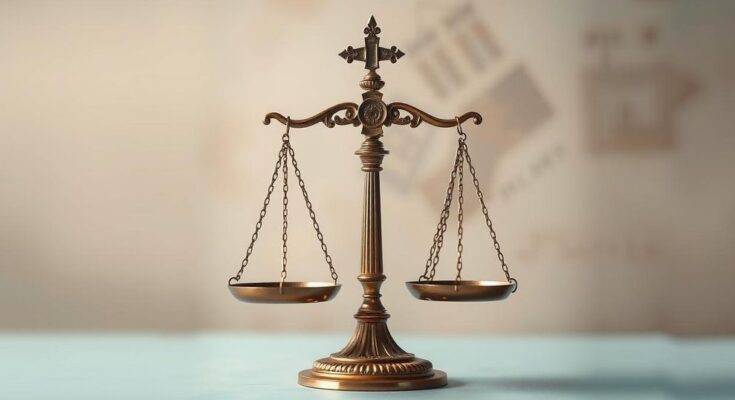The UNHRC Core Group on Sri Lanka, led by the United Kingdom, presented a report commending the peaceful transition of power and urging the new government to address pressing human rights issues. The report emphasizes the importance of reconciliation efforts, legislative reforms, and community support in accountability processes while the Sri Lankan government reinforced its commitment to human rights and rejected certain UN resolutions.
On March 3, 2025, the Core Group on Sri Lanka, led by the United Kingdom, submitted a joint report to the United Nations Human Rights Council (UNHRC) during its 58th session. This group, which includes Canada, Malawi, Montenegro, and North Macedonia, assessed Sri Lanka’s recent political and human rights changes. The report commended the peaceful conduct of elections and lauded the smooth transfer of executive power that occurred last year.
The report recognizes that the new Sri Lankan Government has only recently taken office, stating, “We encourage Sri Lanka to use the opportunity that this transition represents to address the challenges it faces.” It further acknowledges the Government’s commitment to reconciliation, highlighting initial measures such as returning lands to communities, removing obstructions, and allowing commemorations for those lost during conflicts in the North and East.
Moreover, the Core Group expressed support for the government’s pledges to implement constitutional devolution and governance reforms. It also noted the government’s intention to repeal the Prevention of Terrorism Act, urging that any new laws conform to international obligations. The report stressed the necessity for the release of individuals still detained under this legislation.
As progress is made on human rights and corruption, the Core Group called for comprehensive reconciliation efforts, stating, “Any comprehensive reconciliation and accountability process carry the support of affected communities, build on past recommendations and meet international standards.” It also encouraged strengthening domestic institutions focused on reparations and the ongoing search for missing persons, reiterating a willingness to assist in creating meaningful transitional justice mechanisms.
The Sri Lankan government concurrently presented its own oral report at the UNHRC in Geneva, outlining initiatives to cultivate a new political culture, advance economic growth, and promote social development. It reaffirmed its dedication to democracy and human rights while voicing refusal of the UNHRC Resolutions 46/1, 51/1, and 57/1, along with the external evidence gathering mechanisms designed for Sri Lanka.
The Core Group on Sri Lanka has expressed its support for the new government’s efforts in human rights and reconciliation while urging adherence to international standards. The group’s recommendations emphasize the importance of community involvement in accountability processes and the strengthening of domestic reparations programs. Moreover, while the Sri Lankan government outlined its initiatives focused on democracy and development, it also maintained a stance against certain UN resolutions, underscoring a significant dialogue on governance and human rights in the nation.
Original Source: www.adaderana.lk




